How to Keep Your Child Engaged: 7 Creative Playtime Ideas
Keeping a child engaged can be both rewarding and challenging. Their curious minds and boundless energy require activities that not only entertain but also contribute to their development. In this article, we’ll explore 7 creative playtime ideas that will not only keep your child engaged but also develop new skills reducing their screen time. Each of these suggestions will help provide you a break from your child keeping them engaged for many hours.
1. Promote Arts and Crafts

Arts and crafts are a wonderful way to foster creativity and fine motor skills in toddlers. Among the most engaging activities are drawing and playing with clay, both of which allow children to express themselves while developing important skills.
Drawing Activity: Provide your toddler with a variety of drawing materials such as crayons, markers, and colored pencils. Encourage them to draw freely, whether it’s simple shapes, favorite animals, or even just scribbles. Drawing helps improve hand-eye coordination, enhances their understanding of colors and shapes, and gives them a sense of accomplishment as they see their creations come to life on paper.
Clay Play: Introducing your toddler to clay is another excellent way to nurture their creativity. Working with clay allows them to explore textures and shapes while strengthening their fine motor skills. Encourage them to mold the clay into different forms, such as animals or simple objects, which not only stimulates their imagination but also improves their dexterity and hand strength.
Both drawing and clay activities provide toddlers with a hands-on, sensory-rich experience that is both educational and fun, making them ideal choices for creative playtime.
2. Promote Music

Music is a powerful tool for engaging toddlers. It stimulates their auditory senses, enhances memory, and promotes emotional expression. Incorporating music into playtime can be as simple as singing songs, playing musical instruments, or having a dance party. Music activities are not only entertaining but also support language development, rhythm recognition, and even early math skills.
Example Activity: Introduce your toddler to different musical instruments, such as tambourines, maracas, or xylophones. Encourage them to experiment with different sounds and rhythms by playing along with their favorite songs. You can also have a sing-along session where you sing nursery rhymes or other children’s songs together. This activity helps your toddler develop a sense of rhythm and enhances their auditory discrimination skills.
Benefits: Musical activities help toddlers develop language skills by exposing them to new words and sounds. They also improve memory and concentration, as your child learns to remember lyrics and follow rhythms. Music can also be a great way to soothe your toddler and provide comfort during stressful times.
3. Promote Reading Book Activities

Reading is one of the most valuable activities you can share with your toddler. It stimulates their imagination, expands their vocabulary, and fosters a love for books. Reading together not only strengthens the parent-child bond but also supports your child’s language development and cognitive growth.
Example Activity: Create a cozy reading nook with soft cushions and a variety of picture books. Choose stories that capture your toddler’s interest and encourage them to participate by asking questions or acting out parts of the story. For instance, you can read a book about animals and ask your toddler to imitate the sounds or movements of the animals. This makes storytime interactive and engaging, helping your child develop a love for reading.
Benefits: Reading aloud to your toddler helps them develop listening skills, attention span, and comprehension. It also introduces them to new words and concepts, which is essential for language development. Regular reading sessions can also foster a lifelong love of books and learning.
4. Provide Educational Toys and Games

Educational toys and games are essential tools for keeping your toddler engaged while supporting their cognitive and motor skill development. These toys are designed to challenge your child’s mind, encouraging problem-solving, critical thinking, and creativity. Whether it’s a puzzle, a shape sorter, or building blocks, educational toys provide endless opportunities for learning through play.
Example Activity: Explore Mittimate’s extensive collection of educational and learning toys for kids. Discover a variety of brain teaser toys, jigsaw puzzles, board games, and DIY toys designed to engage children of all ages. Some recommended toys for different age groups are given below. Check them out.
Benefits: Educational toys promote early learning by introducing basic concepts such as numbers, letters, shapes, and colors. They also encourage independent play, allowing your toddler to explore and solve challenges on their own, which builds confidence and self-reliance.
5. Promote Dance Activities

Dance is an excellent way to keep your toddler physically active while promoting coordination, balance, and gross motor skills. Dance activities are not only fun but also provide a healthy outlet for your toddler’s energy. Whether it’s freestyle dancing or following simple choreography, dance helps improve physical fitness and encourages self-expression.
Example Activity: Organize a dance party at home with your toddler’s favorite music. Encourage them to move freely and explore different dance moves. You can also introduce simple dance routines that involve clapping, stomping, and spinning. Dancing together provides a fun workout and helps your child develop body awareness and coordination.
Benefits: Dancing promotes physical health by encouraging movement and exercise. It also helps toddlers develop social skills as they learn to follow instructions and interact with others. Additionally, dancing boosts confidence and self-esteem by allowing your child to express
6. Promote Outdoor Activities

Outdoor play is crucial for your toddler's physical and mental well-being. Spending time outdoors allows your child to explore the natural world, engage in physical activities, and develop social skills. Simple outdoor activities like playing in the park, gardening, or going on nature walks offer endless opportunities for discovery and learning.
Example Activity: Take your toddler on a nature scavenger hunt where they can collect leaves, rocks, and flowers. You can create a simple checklist of items for them to find, such as different types of leaves or rocks of various colors. This activity not only promotes physical activity but also nurtures their curiosity and appreciation for the environment. Additionally, outdoor play helps improve motor skills, boosts creativity, and provides a healthy outlet for energy.
Benefits: Outdoor activities promote physical health by encouraging exercise and exposure to fresh air and sunlight. They also help toddlers develop a connection with nature and an understanding of the environment. Moreover, outdoor play provides opportunities for social interaction with other children, which is important for developing social and communication skills.
7. Promote DIY Projects

DIY projects are an excellent way to involve your toddler in hands-on learning. These projects can range from simple tasks like making a sensory bin to more complex activities like building a bull cart toy or making a DIY family tree. DIY projects not only keep your kids occupied but also develop new important life skills such as fine motor skills, problem-solving, and working independently.
Example Activity: Create a DIY family tree with Mittimate’s family tree model kit. You can create your own family tree just using simple wooden sheet pieces and bamboo sticks. Let your child help with cutting, assembling, and decorating the tree. This project not only enhances their fine motor skills but also helps them understand family relationships and develop a sense of identity. You can also try simpler projects like making homemade playdough or creating a sensory bin filled with different textures for your toddler to explore.
Benefits: DIY projects encourage toddlers to use their hands and minds to create something new, fostering creativity, independence, and a sense of accomplishment. These projects also provide an opportunity for parents to bond with their child and support their learning in a fun, interactive way.
Conclusion
Engaging your toddler in creative playtime activities is essential for their development and well-being. By providing educational toys, encouraging arts and crafts, promoting DIY projects, and incorporating music, dance, reading, and outdoor activities into their daily routine, you can create a well-rounded playtime experience that supports their growth.
These activities not only keep your toddler entertained but also nurture essential skills such as problem-solving, creativity, physical fitness, and language development. Remember, the key to keeping your toddler engaged is to make playtime both fun and educational. Whether it’s solving a puzzle, creating art, building a DIY project, enjoying music, dancing, reading, or exploring the outdoors, each activity offers unique opportunities for your toddler to learn, grow, and thrive.
By integrating these playtime ideas into your daily routine, you’ll not only help your child develop important skills but also create lasting memories together. So, grab some educational toys, pull out the craft supplies, turn on the music, and head outside for some fun – your toddler will thank you for it!
- Child development through play
- Child engagement ideas
- Creative play for kids
- Creative play for toddlers
- Engaging activities for kids
- Fun activities for children
- Fun family activities
- How to entertain kids
- Interactive playtime
- Kid-friendly activities
- Parenting tips for play
- Play ideas for all ages Indoor activities for kids
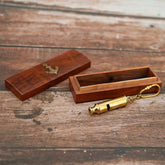

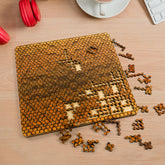

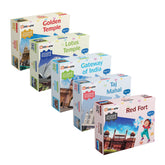

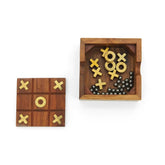

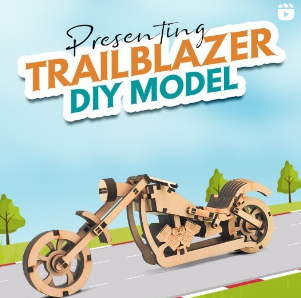

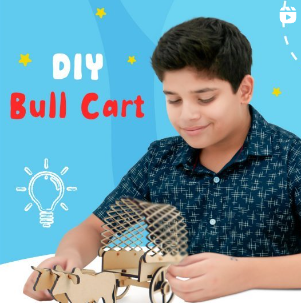
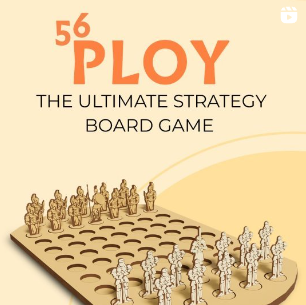
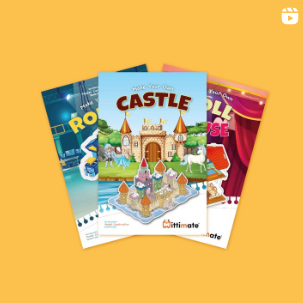
Leave a comment
Please note, comments need to be approved before they are published.